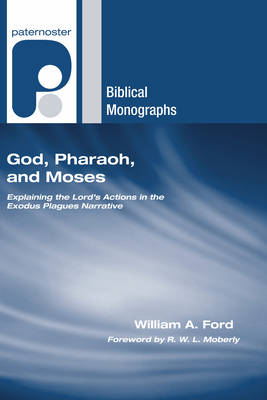
- Retrait gratuit dans votre magasin Club
- 7.000.000 titres dans notre catalogue
- Payer en toute sécurité
- Toujours un magasin près de chez vous
- Retrait gratuit dans votre magasin Club
- 7.000.0000 titres dans notre catalogue
- Payer en toute sécurité
- Toujours un magasin près de chez vous
74,95 €
+ 149 points
Format
Description
The story of the Exodus from Egypt is of fundamental importance, both in the Old Testament and beyond. However, it also contains issues that are theologically problematic for many readers, especially concerning the actions of God. Why does God send a series of devastating plagues on Egypt? How do we understand the hardening of Pharaoh's heart? What do the answers to these questions say about the character of God? This study addresses these questions, taking into account the complex interaction of the presuppositions of faith and responsible textual interpretation. The approach is narrative-theological and canonical--reading the story in its current form as a story, and concentrating on the various passages within the story that appear to present rationales for God's actions (especially Exodus 9:13-19 and 10:1-2). By reading these ""explanations"" in their context within the story, and paying attention to such factors as speaker, addressee, purpose, and reception, a picture is built up of the different and developing relationships between God, Pharaoh, and Moses. This complex interaction provides a way to read and understand the wider plagues story, including the plagues and hardening of the heart within it. The study concludes by considering another story with a similarly ""difficult"" portrayal of God's actions--the story of the capture of the Ark in 1 Samuel 4-7, where a similar pattern can be observed. The picture that emerges is challenging rather than comfortable--a God who is responsive, speaking and acting to confront others to make the appropriate response to him.
Spécifications
Parties prenantes
- Auteur(s) :
- Editeur:
Contenu
- Nombre de pages :
- 268
- Langue:
- Anglais
- Collection :
Caractéristiques
- EAN:
- 9781498249515
- Date de parution :
- 01-04-07
- Format:
- Livre relié
- Format numérique:
- Genaaid
- Dimensions :
- 152 mm x 229 mm
- Poids :
- 530 g

Les avis
Nous publions uniquement les avis qui respectent les conditions requises. Consultez nos conditions pour les avis.






